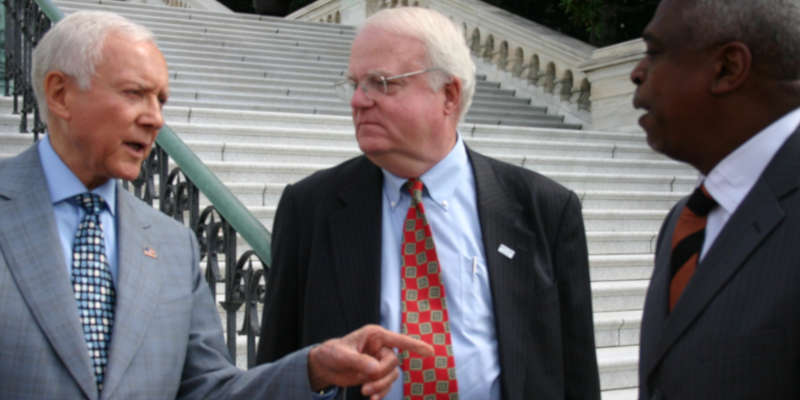Photo Credit: Flickr
After the repeal of PASPA, much has seemed to change in the United States, and all for the better – especially if you are a bookmaker or a casino. However, a senior US politician may have attempted to resuscitate the Wire Act by writing directly to U.S. Deputy Attorney General Rod Rosenstein.
A Return to the Days of the Wire Act?
U.S. House Subcommittee on Crime, Terrorism, Homeland Security and Investigations Chairman Jim Sensenbrenner has reportedly reached out to U.S. Deputy Attorney General Rod Rosenstein to seek the restoration of the Wire Act which could potentially undo the progress achieved so far by the iGaming and betting industries in the past few years.
Following a verdict that the Wire Act could not be used on online gaming, the legislation was no longer used as an attempt to restrain the legality of the segment. However, Mr. Sensenbrenner seems to think differently.
Mr. Sensenbrenner specifically cited popular arguments that unregulated gambling activities could potentially be used for the purposes of funding terrorism and other threats to the national security. He reportedly inked a demand for close supervision of the activities of operators that may be coloring around the lines.
The new qualms are brought up following the annulment of PASPA and are a direct response to the new security challenges that this can bring to the United States, Mr. Sensenbrenner believes. He cited evidence that individual states were inactive insofar as they sought to address potential security threats, trying instead to divvy up the market between operators willing to pay.
A Path to the Days of Old
Mr. Sensenbrenner outlined two possible courses of action, with one being reversing the removed federal ban and the other, ensuring a framework that allows all operators to comply to the same standards across the entire country.
However, this will bring around new complications as coming up with a benchmark for all states could also, and would most likely be, assailed by local lawmakers, not to mention companies already operating that will challenge the legality of such a move. Still, Mr. Sensenbrenner continued to issue his warnings.
Wagering will allow for exploitation of internet gambling by criminal and terrorist organisations to obtain funds, launder money, and engage in identity theft and other cybercrimes.
Mr. Sensenbrenner has sought help from both Rosenstein and the U.S. Department of Justice (DOJ) to help the country address the looming if unpercieved threat of unchecked online gambling.
To protect the American public and limit the ability of nefarious organisations from exploiting internet gambling, I believe Congress will develop a legislative response to the issues created by the Supreme Court’s decision striking clown PASPA.
His appeals to kill PASPA, however, is perhaps even more difficult to achieve at this point. A more sensible course of action would be to seek regulating the industry and holding them accountable to the same standards.
One of the proponents of such measures is US Senate Minority Leader Chuck Schumer who has been working on a framework that will help bring the sports betting industry under the same standards.
